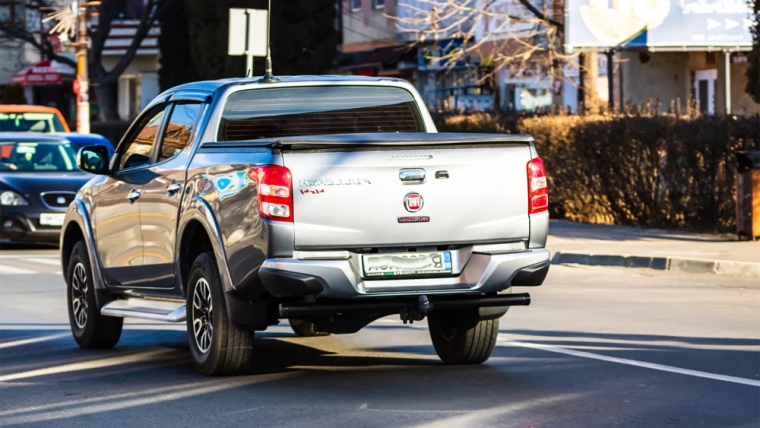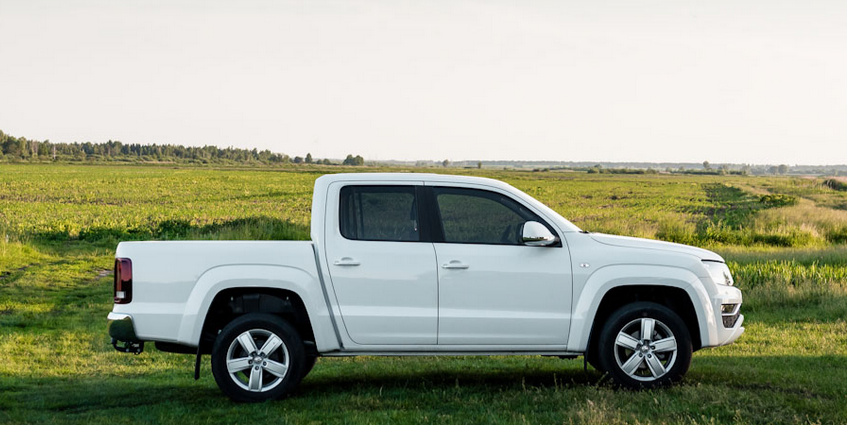
Earlier this year. Inland Revenue released an issues paper consulting on fringe benefit tax changes. This originated from a 2022 stewardship review of FBT. The issues paper noted it has been 40 years since FBT was introduced and it was therefore opportune to reconsider certain areas of the tax.
One of the key areas the Government is consulting on is in relation to the FBT treatment of motor vehicles. The issues paper noted that there may be some concerns and misconceptions around the work-related vehicle exemption as it applied for twin or double cab utes. There appears to be a widespread perception that twin cab utes are exempt from FBT because they represent work related vehicles.
On Tuesday, Inland Revenue Deputy Commissioner for policy David Carrigan stated in a press release that it is a myth that utes have always been free from FBT.

“When it comes to double cab utes, these are treated no differently to any other vehicle unless the use of the vehicle meets all requirements for an exemption from FBT, then a double cab ute is and always has been subject to FBT. That is the current law.”
He added that work related vehicles are only exempt from FBT if they meet specific requirements. But there is no blanket exemption for twin cab utes.
The press release goes on to explain the way the rules work and how the exemption might work. The basic position being that it is only exempt on days when it is used for essential work purposes as defined by Inland Revenue. Where vehicles are used partly for business and partly privately, they've always been subject to FBT on the days those vehicles are used for private purposes.
Simplifying FBT
According to the press release the purpose of the proposals out for consultation, if implemented, is to simplify FBT and reduce compliance costs, not create additional obligations. If a business, including a farm, is not currently liable for FBT on a vehicle, then it's unlikely that that business would become liable for FBT on any proposals taken forward.
The press release then concludes by reminding that government still hasn't made any final decisions in relation to any potential changes for FBT as it's still considering the feedback it received on the issues paper released in April consultation which closed on 5th May.
My expectation is that if we're going to see anything happen, we'll see any changes included in this year's tax bill, which we can expect to see in late August/early September based on previous years.
In the meantime, it is interesting to see Inland Revenue feels compelled to come out and remind people of the rules. Clearly, the perceived status of twin cab utes was something of a sore point for some people who felt that the work-related vehicle exemption was being abused.
Inland Revenue targets the horticulture sector
Moving on, we've frequently discussed Inland Revenue initiatives on compliance and debt enforcement. As we noted last week, the Budget allocated close to $90 million this year in additional funding to Inland Revenue for investigation and general compliance work and debt management. The expectation is that Inland Revenue will get a return of $8 for every dollar put into such activity.
And then on Wednesday, the latest update on Inland Revenue’s progress in these areas was in relation to the horticultural sector where the press release noted
“Inland Revenue is seeing a few concerning practises in the horticultural sector, including people being paid under the table.”
In the past ten months, Inland Revenue has found $45 million of undeclared tax in the horticultural industry from under the table cash sales not being reported correctly, withholding tax either not being deducted on schedular payments made or deducted at the wrong rates. In some cases, the payments were not even reported to Inland Revenue.
Convoluted structures
According to the press release, many of the issues Inland Revenue has seen arise are in relation to labour hire firms, who frequently pay the labourers in cash. Some of those firms then use convoluted business structures to try and hide those payments and avoid the withholding tax obligations that come with them.
The problem Inland Revenue has with this behaviour is the withholding tax it's obviously missing out on. But it also means that because the labourers’ incomes have been understated, they could possibly get benefit payments they're not entitled to and in some cases avoid their child support and student loan payments.
Unsurprisingly, Inland Revenue is cracking down on this ...
“…by requiring many contracting firms to withhold tax from their labour repayments and pay that directly to Inland Revenue, where Inland Revenue identifies growers and other payments not correctly deducting or accounting for their tax. We're also following these up with interviews.”
It's also pursuing the contracting firms through audits and prosecutions, and apparently there are nearly 100 such audits active at the moment.
“High use of cash and migrant labour”
The press release concludes by noting that there's a high use of cash and migrant labour. The horticultural industry is therefore a sector open to abusing workers so Inland Revenue will work with other New Zealand government agencies to address these issues.
Cash payments are always a target for Inland Revenue, but it's interesting to see a sector singled out and certain types of firms identified as the risky part of the equation. The initiative is another sign of how Inland Revenue is using its increased funding and the ongoing issues it encounters in the sector. It will be interesting to see the results of the prosecutions.
And on that note, that’s all for this week. I’m Terry Baucher and you can find this podcast on my website www.baucher.tax or wherever you get your podcasts. Thank you for listening and please send me your feedback and tell your friends and clients. Until next time, kia pai to rā.
5 Comments
At some point IR might just decide to obtain the EDR of a vehicle have some pretty interesting 'business' travel info.
I was always intrigued by my inner city optician having a branded double cab ute
Yes while the IRD claim there is no exemption, they have never actively policed the strict interpretation of the FBT rule.
Hence the wide spread use of twin cab utes.
And another unfair advantage business owners have over wage and salary earners.
Indeed.
A couple of times over the years I've come across the NZ websites of tax advisers and Accountants clearly stating that utes are exempt from FBT. IRD could go for those low hanging fruits for starters.
"...there is no blanket exemption for twin cab utes." No one assumed that. IRD were proposing to "simplify" to the extent of blanket FBT assumptions that ignored actual work use.
That didn't age well...
https://www.scoop.co.nz/stories/PO2506/S00114/pms-intervention-to-kill-…
https://youtu.be/uKUjbPUm9zQ?feature=shared

We welcome your comments below. If you are not already registered, please register to comment
Remember we welcome robust, respectful and insightful debate. We don't welcome abusive or defamatory comments and will de-register those repeatedly making such comments. Our current comment policy is here.